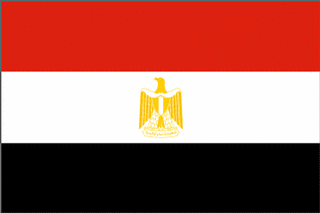Reacting to the dizzying changes in Egypt, MEPs passed a resolution calling on the EU to rethink and improve its political and financial strategy to assist the country’s transition to democracy, including organising free elections.
 Reacting to the dizzying changes in Egypt, MEPs passed a resolution calling on the EU to rethink and improve its political and financial strategy to assist the country’s transition to democracy, including organising free elections. They also call for a freeze on the assets of all Egyptian leaders responsible for misappropriating public funds in the country.
Reacting to the dizzying changes in Egypt, MEPs passed a resolution calling on the EU to rethink and improve its political and financial strategy to assist the country’s transition to democracy, including organising free elections. They also call for a freeze on the assets of all Egyptian leaders responsible for misappropriating public funds in the country.
President Hosni Mubarak's departure “has opened a new phase in the political transition in Egypt” and the Egyptian armed forces must now play a constructive role, facilitating the political process, ensuring free elections and keeping to its peace commitments with Israel. The resolution outlines the role that MEPs believe the EU should play in helping its strategic Mediterranean neighbour's transition to democracy.
EU role in assisting Egypt
In the past, the goal of stability has often overshadowed values of democracy, social justice and human rights in the EU’s relations with its southern neighbours, acknowledge MEPs. They therefore wish to ensure that the clause allowing the EU to suspend any association agreement with a third country in the event of serious human rights violations can be implemented effectively in future.
If there is any lesson to learn from the revolution in Egypt, it is that the EU’s existing policies towards southern Mediterranean countries have failed, note MEPs, who advocate revising the EU's European Neighbourhood Policy (ENP), so as to prioritise goals such as fostering the independence of the judiciary, combating corruption or ensuring that bilateral agreements give precedence to basic freedoms over economic aims.
Furthermore, ENP countries must fulfil a list of political criteria in order to obtain the so-called “advanced status” in their relations with the EU, says the resolution. Tunisia has been negotiating with Council to become an advanced EU partner in the Mediterranean since May 2010. This status was first granted to Morocco, in 2008.
MEPs also favour mobilising all EU financial instruments, such as the ENP Instrument, the European Instrument for Democracy and Human Rights and the Stability Instrument, to assist Egypt’s transition to democracy.
Finally, the EU Foreign Affairs High representative should create a “task force”, to include MEPs, which would co-ordinate the response to all financial and political needs during the transition process, including institution-building efforts, ensuring the independence of the judiciary and sending a mission to observe elections.
Union for the Mediterranean criticized
The Union for the Mediterranean (UfM), a multilateral partnership created in 2008 which encompasses 27 Member States and 16 countries from the Mediterranean basin, “proved ineffective to meet the growing mistrust and the basic needs of the people concerned”, says the resolution. Both the UfM and the Anna Lindh Euro-Mediterranean Foundation are urged to react to these historic circumstances, mobilize civil society and play a more active role in promoting democracy and human rights in the region.
€1 billion for SMEs in the Mediterranean basin
Voting on separate legislation on Thursday, Parliament also decided to increase by €1 billion the overall amount of guarantees to the European Investment Bank for loans to projects outside the EU. The whole of the increase should be used to back loans for small and medium sized enterprises and infrastructure in the Mediterranean basin.
Delegation
Also on Thursday, Parliament's Conference of Presidents approved a proposal to send a delegation of MEPs to Egypt in the coming weeks.